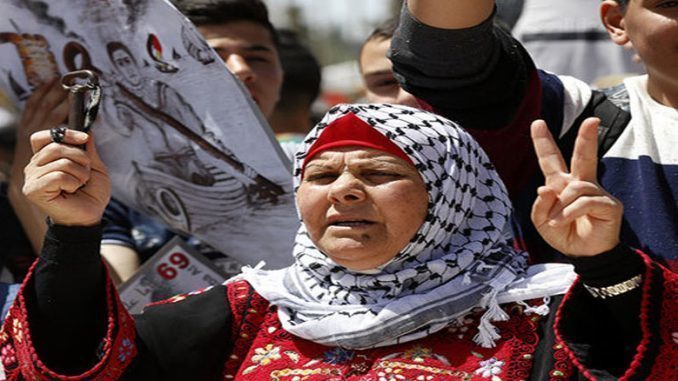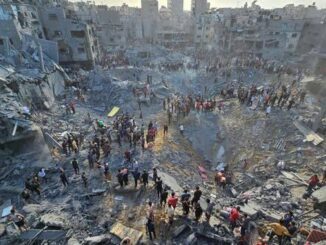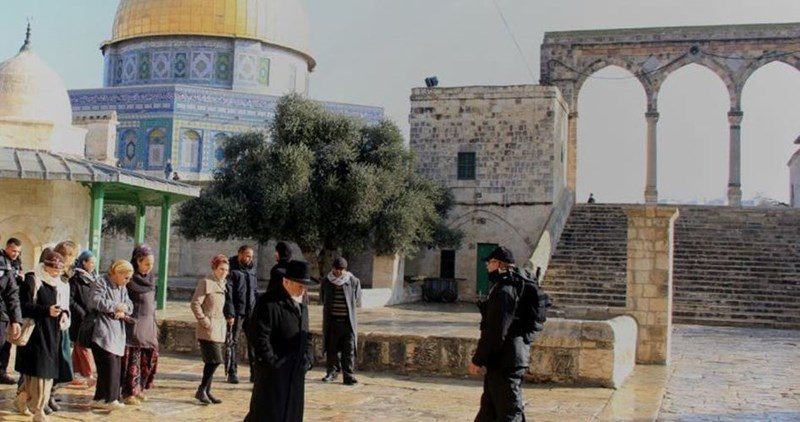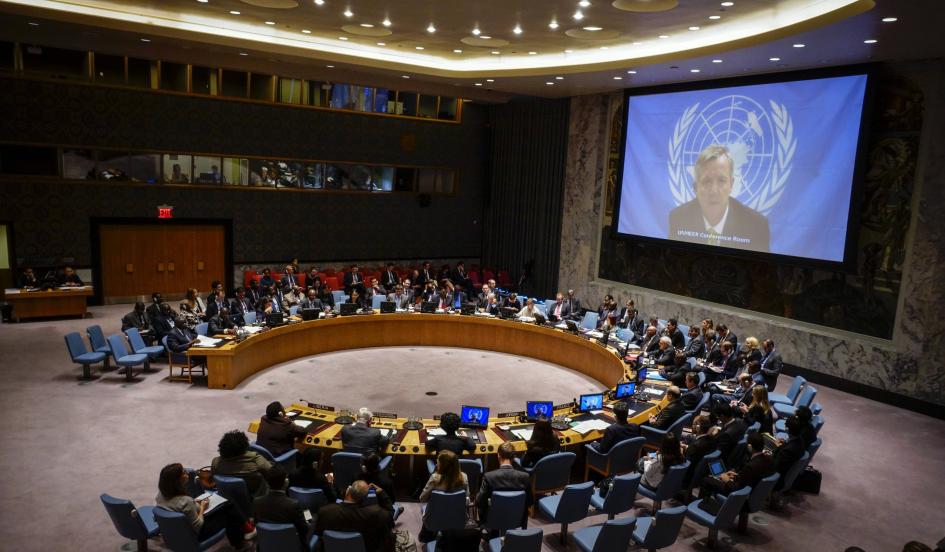
As Palestinians marked on Monday 69 years since the beginning of the Nakba — or “catastrophe” — officials and activists denounced the human rights violations Palestinians have endured since the establishment of the state of Israel in 1948.
Every May 15, commemorations recall the Nakba, during which hundreds of Palestinians were killed by Zionist militias and more than 750,000 Palestinians were forcibly expelled from their lands in 1948 and scattered across refugee camps in the occupied West Bank, the Gaza Strip, Jordan, Lebanon, and Syria, according to the United Nations Relief and Works Agency (UNRWA).
More than six million Palestinians, whether in the occupied Palestinian territory or in the diaspora, still call for the application of their internationally recognized right of return to their homes and villages in present-day Israel, a right which has been enshrined in international law following the adoption of United Nations Resolution 194.
Palestinian legal rights NGO BADIL estimates that 66 percent of the 13 million Palestinians in the world today have been displaced “at least once in their lifetime, with significant numbers experiencing it more than once.”
Meanwhile, Visualizing Palestine detailed in a graphic on the occasion of Nakba Day that 77 percent of former Palestinian towns and villages in present-day Israel had never been built over, corroborating the belief that the forced displacement of hundreds of thousands of Palestinians was part of a plan to ethnically cleanse the area as opposed to a struggle for space between Israelis and Palestinians.
“The Nakba means an ongoing journey of pain, loss, and injustice,” Palestine Liberation Organization (PLO) Secretary-General Saeb Erekat in a statement on Sunday.
Notably evoking the Deir Yassin massacre, in which scores of Palestinians were killed by Zionist militias, Erekat denounced the fact that “as with almost every single crime committed by Israel before and since its creation, the criminals responsible for such massacres and war crimes enjoyed full impunity.”
Erekat said that Israeli recognition and apology for the Nakba were a necessary condition “to achieve a just and lasting peace between Israel and Palestine.”
“We call upon the Israeli government to open all its 1948 archives and show their own nation the truth of what was done to our people, including its ethnic cleansing policies and the policy of shooting to kill Palestinians that attempted to return home,” Erekat said.
The PLO leader also called upon the United Kingdom to apologize for the 1917 Balfour Declaration, which unilaterally bestowed Palestinian lands for the establishment of a Jewish state.
Meanwhile, the Global Palestinian Refugee and Internally Displaced People Network stressed that the Nakba and its repercussions have extended far beyond 1948.
“The Nakba is ongoing, not only through policies of ongoing displacement implemented through the Zionist-Israeli strategy which seeks to control the maximum amount of land with the minimum number of Palestinians on that land, but also through the failure of the international community and Arab states to uphold their obligations, the continued internal fragmentation, the disenfranchisement of the PLO, and the weak performance of the Palestinian Authority which is dictated by the restrictive Oslo Accords,” the NGO umbrella group said in a statement.
It notably slammed the international community’s “resounding silence and lack of practical action” as a crucial factor which has enabled Israeli violations of Palestinian rights to continue until today.
“The humanitarian aid and politically based approaches adopted by the international community based on the massive imbalance of power and void of any human rights foundations … have failed to achieve justice and peace,” the network wrote. “Instead, these approaches have more deeply entrenched the ongoing Nakba and facilitated Israel’s colonial domination and apartheid policies.”
“The lack of international response to the mass hunger strike of over 1,000 Palestinian political prisoners who are in need of immediate intervention and protection symbolizes the dehumanization and demonization of the Palestinian people in their struggle for dignity, justice and freedom,” it added.
Meanwhile, Palestinian Authority President Mahmoud Abbas hailed “our heroic prisoners” on their 29th day of hunger strike in Israeli prisons on the occasion of Nakba Day, and called for Palestinian unity in order to achieve Palestinian independence.
“The great Palestinian people, I tell you that our struggle and determination on our homeland and on our national right is the decisive factor that will lead to our freedom and independence,” his statement read. “We renew our demand to end fissure and unite the national line to face all challenges because our national unity is a sacred principle that will achieve the hopes and ambitions of our people in establishing independent state with Jerusalem as its capital.”
The Palestinian Boycott, Divestment and Sanctions National Committee (BNC) said that despite Israel “sparing no brutality in its relentless, desperate attempts to sear into our consciousness the futility of resistance and the vainness of hope,” it believed in a positive outcome to the decades-long conflict, in part due to growing successes by the BDS movement.
“The growing intersectional coalitions that are emerging in many countries, organically reconnecting the struggle for Palestinian rights with the diverse international struggles for racial, economic, gender, climate and indigenous justice give us unlimited hope,” the BNC said in a statement on Monday.
“For seven decades, and against all odds, Palestinians have continued to assert our inalienable right to self-determination and to genuine peace, which can only stem from freedom, justice and equality,” the organization added. “But to reach that just peace we realize that we must nourish our hope for a dignified life with our boundless commitment to resist injustice, resist apathy and, crucially, resist their ‘iron walls’ of despair.”



